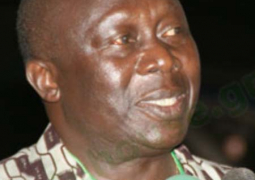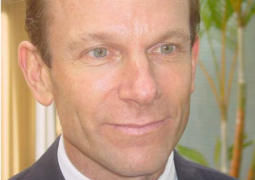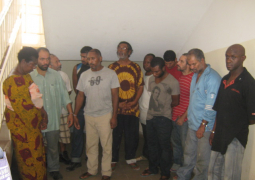A 10-member ECOWAS parliament observer mission for the just-concluded elections in Togo has described as free and fair, the election that was won by the incumbent President Faure Gnassimbe.
The ECOWAS delegation, headed by Senegalese Dr. Babacar Ndiaye, retired president of the African Development Bank, however, insisted that the process of election observation which it carried out at this stage and which stops with the declaration of the results at the polling station is not conclusive.
"The mission will continue to monitor attentively the final stages of the electoral process notably the collation and official declaration of the election of 4th March 2010 and developments that may arise thereafter," a statement by the delegation said.
The ECOWAS mission welcomed the existence of CENI, which was charged with the responsibility of conducting elections in Togo. It however noted some shortcomings in its operational modalities, which it said, needed to be corrected.
"The adoption of a simple majority in deciding the winner needs to be corrected. The absence of the limitation of the tenure of the president needs to be addressed," ECOWAS mission recommended, adding that the division of the country into North and South is not conducive to the process of national reconciliation.
The mission calls for the encouragement of political parties to have an outlook that transcends ethnic and geographical cleavages, noting further that it is necessary to resolve the problem of the ballot paper not being numbered like the corresponding counterfoils.
The ECOWAS mission, which also included Gambian parliamentarian Hon. Ablie Suku Singhateh, member for Lower Baddibu constituency, congratulated the Togolese people, and the stakeholders for the process of national reconciliation, which made a successful legislative election possible in 2007. These efforts, the mission stated, must continue among various sections of the Togolese people in order to reform the institutions and consolidate the democratisation process.
The mission encouraged the various stakeholders to find solutions to such problems like the simple majority, limitation of tenure for the president, ballot papers, the process of transmission of results and the conduct of a population census as a basis for a reliable voters' list. It called on ECOWAS and the international community to support the economy of Togo within the global framework of poverty reduction.
ECOWAS recommended the acceptance of the results of the polls by the different candidates. However, as is the case in all electoral contests, ECOWAS did not exclude the possibility of post-electoral dispute. In such an eventuality, ECOWAS appealed to all parties to adopt a legal and constitutional approach.
"The optimal level of the transparency and credibility of the presidential election will depend on the manner in which the authorities conclude the final phases such as the transmission, compilation and declaration of the results," the mission added, calling on the candidates and their supporters to put the interest of Togo above their partisan considerations.
Other missions that observed the election were from the African Union and European Union.




